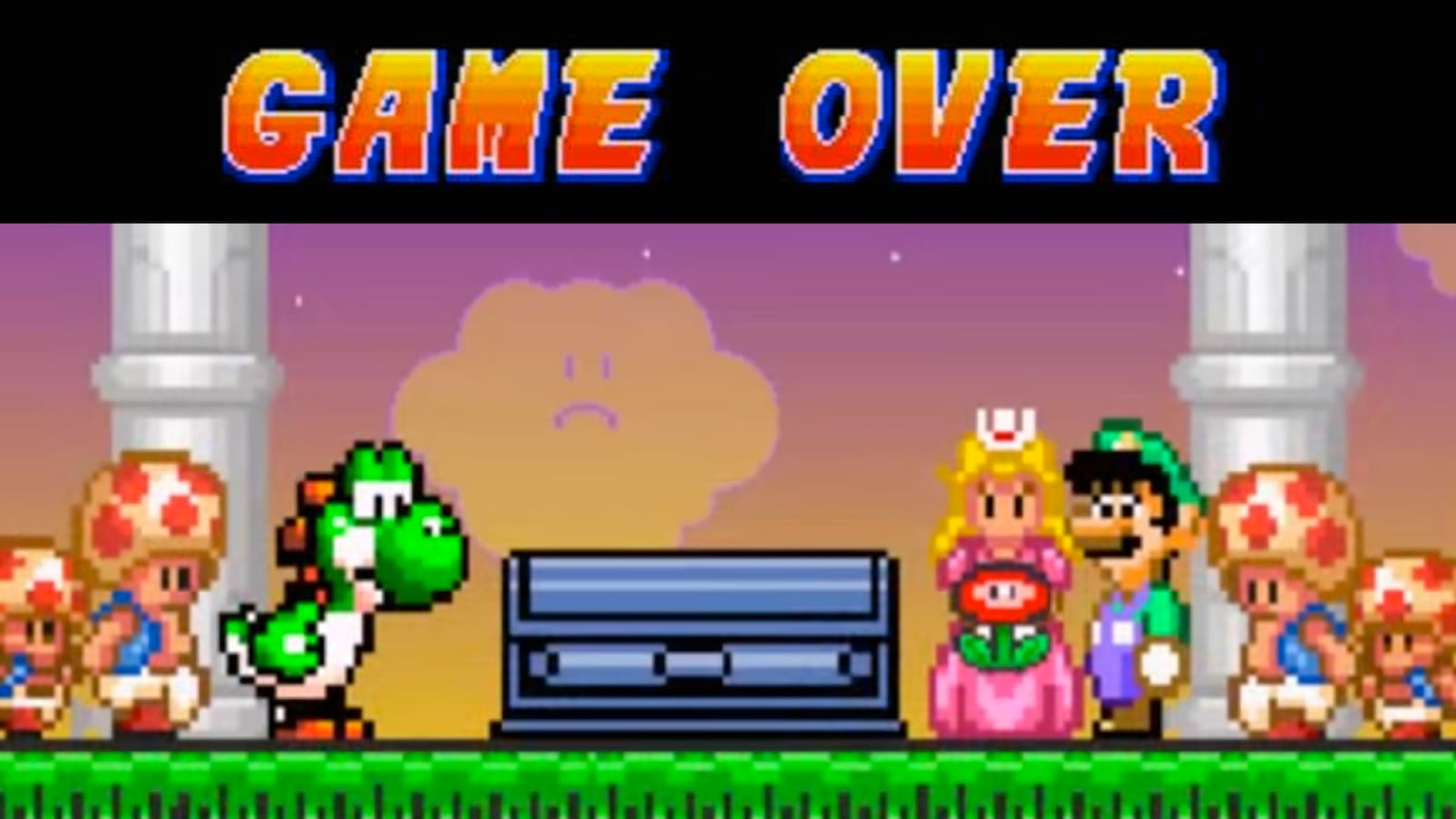Games writers are disavowing themselves from “Gamers.” They’re proclaiming the death of the Gamer identity. It’s a bold statement to be sure, but the real question is what took so long?
You see, Gamers are angry, and they’re attacking prominent figures, especially women, with slanderous claims and death threats serious enough to drive them from their homes.
But none of this is new.
The only difference is that multiple high-profile things happened near-simultaneously, and that pushed things into the mainstream. Large outlets are now dipping their toes into reporting on gaming culture as it becomes increasingly popular, but many recoiled in horror at the treatment of Zoe Quinn and Anita Sarkeezian. (The public attacks against Phil Fish, who came to Quinn’s defense, were less widely reported but equally vile.) These things are absolutely deplorable, but they were par for the course for some of the more dedicated “Gamers” in the community.
The word “gamer” is actually really old—Miriam Webster dates it to 1630—but it no longer has a generic meaning referring to game players of all kinds; it a term that refers specifically to those who play video games, and it’s had that meaning for more than 20 years. While there’s no clear first use of the term in a new context, it was already established by the time PC Gamer was founded in 1993. But it was the rise of the Internet that really brought the word into the general lexicon. Early in its life, IGN.com billed itself as “The #1 Site for Gamers,” and though that was changed by the end of 1999, the word only grew in prominence from there. And leading up to the recent backlash, it’s as popular as it’s ever been.
But “Gamer” was never an inclusive term. It segmented the population between people who identified themselves with video games and those who didn’t. It was never meant to be inclusive. There was no “Ich bin ein Gamer!” moment, and there was never going to be. And anyone who disagrees need look no further than the addition of adjectives to the Gamer. When video games became more popular with more types of people, Gamers didn’t just share their identity. They splintered themselves into two categories: “Hardcore” and “Casual.”
The former “Gamers” became the Hardcore, the ones who played everything, big and small, and followed the goings-on in the industry; people like me who waited in line overnight for video game consoles. On the flipside were the newcomers, many of whom were pulled in by Nintendo’s promise of simplicity with Wii Sports. While there were games for people who didn’t really like games before (the music-focused Guitar Hero and Singstar among them), it was the Wii that really set it off.
Many of these players bought their Wii along with Ubisoft’s Just Dance, and then never graduated onto deeper experiences. “Casual” was (and is) a term generally laced with scorn, was used to reference the other people and a lesser form of gaming that was being created to cater to them. Casual games were ruining the Hardcore industry, and it pushed the elitist Hardcore gamers even further into their own insular communities.
In the years following, the video game market got another massive shakeup thanks to the introduction of smartphones. Nearly everyone who had an iPhone or Android device in their pocket circa 2010 has played Angry Birds, and games like it played a serious role in getting pretty much everyone to check out the App Store every so often to pick up newer titles like Flow or Threes (or Threes knockoff 2042). These sorts of games, simple but well-designed bite-sized bits of entertainment, brought in a whole new crowd of casual players, many of whom were even less interested in the game industry than those who stuck with Wii Sports and Just Dance. For the Hardcore, it was like an assault on all sides.
So when Anita Sarkeezian set up her Kickstarter campaign for the series “Tropes vs. Women in Video Games,” it wasn’t all that shocking that this already angry male-dominated subset of Hardcore Gamers revolted. It was the most recent entry in that series that forced her to leave her home, but the harassment has been horrific from the start. Her fourth backer update was simultaneously excited (she had already blown well past her goal) and saddened by the completely ludicrous anger that was being thrown her way. She posted a screenshot on her blog including such well-reasoned comments as “tits or gtfo” and “you are a fucking hypocrite slut.” (Neither of which even compares to the angriest and most sexist of the comments.) And every single time Sarkeezian has released a video, this same pathetic subset of the culture has called for her head. But none of that caused a public uproar.
Nor did the attack on Bioware senior writer Jennifer Hepler in 2013, where she was threatened for comments she had made well over a year earlier. She told Polygon: “I was shown a sample of the forum posts by EA security and it included graphic threats to kill my children on their way out of school to show them that they should have been aborted at birth.” She soon left Bioware, though she made a point that it wasn’t because of the death threats. This happened around the same time that the aforementioned Phil Fish was first hit with violent backlash. He canceled his upcoming game and removed himself from the Internet for a while. (The same game he would cancel again after his recent harassment.)
But the “doxxing” of Phil Fish (1.5GB of private documents related to him and his business were released online) points to the next schism in the Hardcore sect, and where things really took a turn for the weird. Because the hate isn’t just directed at women. It’s directed at anyone who takes a woman’s side in this big fight for…whatever it is these Hardcore Gamers think they’re fighting for.
Six months ago, an image floated around the internet entitled “Social Justice Warrior Videogame Journalists to Avoid,” a list of men at various game outlets who are to be avoided for their public comments against misogyny. It almost seemed like a joke, but there have since been updates that prove it’s very, very real.
Suddenly, the Hardcore is split by the so-called SJW crowd. On one side are calls for reason and equality; on the other are the conspiracy theorists who fund a “documentary” intended to “shed light on the truth: that the SJWs have been the ones using manipulation and intimidation to push their agenda forward and that the mainstream media has accepted their story uncritically.”
Wow.
That’s really the only word for it. These are the same people who claim that Phil Fish “doxxed” himself and that the death threats made against Zoe Quinn and Anita Sarkeezian were faked. The sheer lunacy of it all is staggering. And it’s leaked beyond the IGNs and Polygons of the world, hitting The New York Times and The Daily Beast itself.
Nobody in their right mind wants to be associated with that, and the toxicity has pushed some out of the industry entirely, including the award-winning freelance writer Jenn Frank, who was attacked for an excellent article she wrote for The Guardian, and critic/designer Mattie Brice, who announced the decision in a post on her blog. And in a particularly harsh critique on Gamasutra, Leigh Alexander makes it clear that many women are feeling that way, writing “Lately, I often find myself wondering what I’m even doing here. And I know I’m not alone.”
Gamer was once a convenient shorthand. Two people who had a shared love of a relatively niche medium could use it to identify each other and then bond over something that they wouldn’t necessary talk about in mixed company. The general public used it disdainfully, but it was meaningful.
That hasn’t been true in nearly a decade. As the term splintered, people clung to it and its variations. But now we’re all realizing something that has been true for years: People who play video games don’t need a label—they’re just people.






